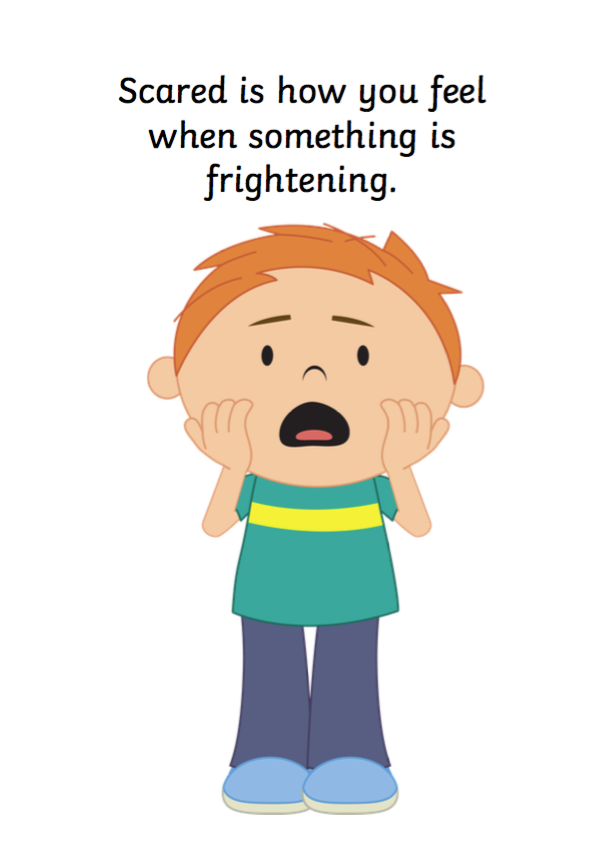
Kids can be fast, loud and unpredictable, and because of that, they can be challenging for even the most even-tempered dogs.īut dogs with generalized fear reactions will find children even more distressing, particularly because a child doesn’t understand canine body language and will have a hard time recognizing when a fearful dog is trying to get away. If your dog is trying to cope with ongoing scary sounds like construction noise, use a white noise machine to muffle the sounds.
Pls remember that when u feel scared series#
Increase the sound over a series of training sessions, watching your dog’s body language to make sure that he isn’t becoming uncomfortable with the noise. Use a recording of the sound to gradually desensitize him to the noise by playing it at a low volume and pairing it with treats. If your dog only reacts to certain types of noises, like sirens or fireworks or thunder, you can use behavioral modification to help your dog learn to tolerate the sound. It’s almost impossible to avoid having a startle reflex when you hear an unexpected loud noise, but dogs that are scared of everything will react more dramatically to noises.įor example, a typical dog might jump at the sound of a dropped pan, but a fearful dog might run, hide and then refuse to come out. Many dog fears are universal-it’s rare that a dog actually enjoys a trip to the vet-however, a dog that’s scared of everything might have a difficult time coping with common, everyday noises or encounters. Common Things That Dogs Are Scared Of and How You Can Help Keep in mind that some behaviors that look like aggression, like leash reactivity and barking, can also be signs of an underlying fear of something. Panting heavily or suddenly stops panting.Some of the telltale signs of fear in dogs include:Ī dog that’s afraid might also show these more subtle signs: But learning to recognize subtler fear reactions will allow you to intervene before your dog’s fear escalates. Some fear displays are hard to miss-like a trembling, hunched-over dog that has their ears back and tail tucked. The first step to helping a dog that’s scared of everything is understanding their body language. Your veterinarian can help you determine whether your dog is experiencing pain or suffering from fear-based issues. Dogs that seem “hand shy” and nervous about being touched might actually be dealing with an undiagnosed medical issue. It’s important to note that some behaviors that look like fear might be related to pain.

For example, a dog that’s caught off guard by firecrackers during a walk might then generalize that fear response to any loud noise-like a car door slamming-and might also develop a fear of walking anywhere near where it happened. Traumatic Experiencesįor some dogs, all it takes is a single traumatic experience to create lifelong fear responses. Puppies born to anxious mothers are more likely to be fearful as well. However, some nervous dogs might also have a genetic predisposition to fearfulness or shyness. This can lead them to be scared of things we wouldn’t associate with fear, like people wearing large hats or having a stroller/skateboard/skater go past you. Puppies that don’t have positive exposure to the world around them might be more likely to be wary of anything new or unusual. This important developmental stage in a puppy’s life occurs between 8 and 16 weeks of age, when pups need to have a variety of pleasant interactions with the world around them. Lack of SocializationĪ common reason for fear in dogs is a lack of positive exposure to new people, animals and environments during the critical fear period of the puppy socialization process.

A dog’s genetic makeup, early experiences, environment and daily life can all have an impact on their temperament. What Makes a Dog Scared of Everything?ĭogs that seem scared of everything can be products of nature and nurture.
Pls remember that when u feel scared how to#
Let’s take a look at why certain dogs are scared of everything, how to recognize fearful behaviors, which situations trigger fear, and how you can help your dog deal with their fear. But when your dog is acting strange and scared in everyday life, it’s stressful for both ends of the leash and can even have long-term health implications. It’s not easy for a pet parent to admit that their dog is scared of everything because trying to work through those fears can be overwhelming.įearfulness does have a place in the wild it increases an animal’s chance of survival by keeping them away from danger. Instead of greeting the world with a confident walk and a wagging tail, a fearful dog might shy away from anything new, or worse yet, react preemptively to avoid a new situation altogether. If your dog is scared of literally EVERYTHING, then you understand that life with a fearful dog can be limiting. Reviewed for accuracy on July 25, 2019, by Dr.


 0 kommentar(er)
0 kommentar(er)
